
OR
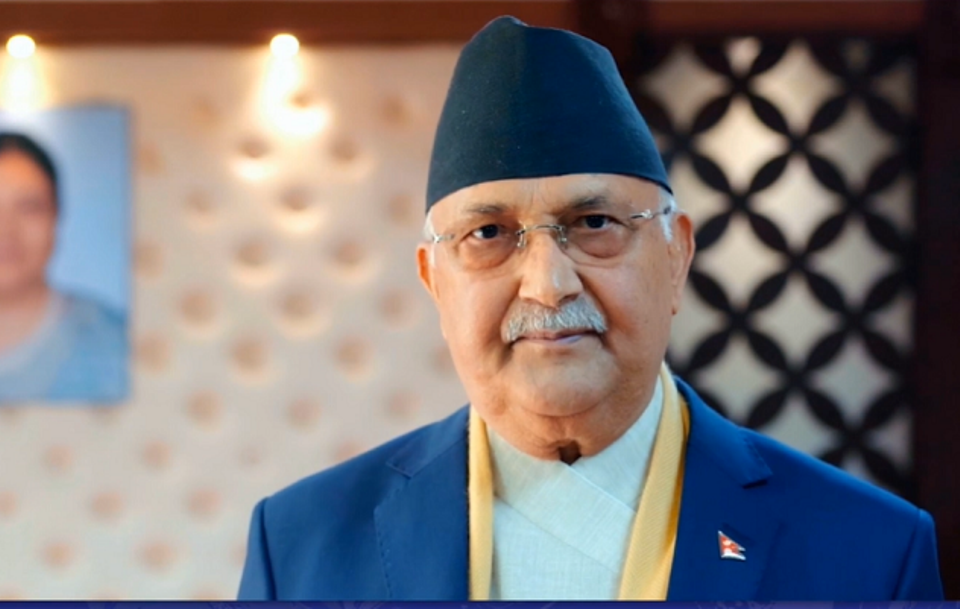
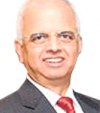
Dinesh Bhattarai
Dinesh Bhattarai, former diplomat and foreign policy expert, has served as the foreign affairs adviser of former prime ministers Sher Bahadur Deuba and Sushil Koirala.news@myrepublica.com
Prime Minister Oli betrayed the people’s mandate for stability, development and dignity and decided to cut short the life of five-year parliament in less than three years.
Democrats all over the world rejoiced at the election of Democratic Party candidate Joe Biden as the 46th President of the United States. His win was seen as a victory over the narcissist brand of politics. Biden’s win is interpreted as a pivotal opportunity to “renew democracy at home and a democratic renewal around the world.” President-elect Biden in his victory speech talked of rebuilding the backbone of the nation’s middle class, and said “we lead not by the example of power, but by the power of our example.” He expressed his intention to hold a “Summit for Democracy” with an agenda to “strengthen our democratic institutions.”
If we look around the globe, there is the rise of populism. Elected leaders who come to power are seen undermining the mandate to distort free and fair elections, trample independent judiciary, and show brazen disregard for the principles of separation of powers. This gave rise to the strongmen theory that made democracy degraded and destroyed by targeting national democratic institutions. They centralize power, show hostility towards opponents, display contempt for free press and desire to be dominant in all spheres of public life in the line of strongman species. Political scientist Larry Diamond wrote in The Global Crisis of Democracy that as China and Russia attack free governments and push strongman rule, the US has gone silent and a new tide of authoritarianism in gathering. An expert on “strongman” theory, Ben-Ghiat defines authoritarianism as “a political system in which executive power is asserted at the expense of the legislative and judicial branches of government.”
Worrying trend
It is deeply worrying that this is happening not just in Belarus, Venezuela, Hungary, Poland, and Italy, but in the oldest and largest democracies United States, United Kingdom and India. The United States—the seat of the constitutional democracy and most influential leader of democratic values in multiethnic and multicultural society upholding tolerance and harmony—witnessed a wave of populism and polarization of society. At a time when the world is getting more diverse, and tolerance and harmony for diversity is eroding, social and cultural divides are getting widened across the globe. Brexit was seen in this trend. Indian historian Ramachandra Guha tweeted on January 18, 2020: “With two electoral mandates, Modi could have taken India to the next level: economically, politically, socially. Instead, he has blown it away. Our economy is more fragile and vulnerable. Our society is more fearful and divided. Our institutions more compromised and corroded.”
Ben-Ghiat talks of leaders who take power “in an already closed system” and are a product of “an established process.”
The resurgence of these trends reflects in weakening liberal democratic values and fueling the rise of populist nationalism. Elected leaders are seen striking at the very heart of democracy and the spirit of the constitution they pledged to protect. In this atmosphere, democracy unquestionably lost momentum. Populist and nationalist rhetoric sowed the seeds of social and cultural divides putting the state of democracy in deep trouble. Over the years, liberalism has retreated and the architect of the liberal world order—the US—was seen withdrawing from its global leadership.
Democracy was on the move when the progress and prosperity was in democracies. Now the economic wealth is with authoritarian states. There are temptations to move to strongman theory projecting that the liberal idea has become obsolete. They see democracy as a “chaotic system” and see multiculturalism as “no longer tenable.” They argue that development takes better shape without democracy. The Covid-19 pandemic has accelerated the trends of perverting the democratic system, curbing the free media and shrinking political rights and civil liberties.
The late Harvard political scientist Samuel Huntington wrote “democratic change does not happen in isolation. It surges forward and retreats in waves, across regions and the whole globe.” According to the Freedom House, democracy faces a global crisis. It reports freedom has seen consecutive years of erosion in global levels of political rights and civil liberties, with so many more countries declining than gaining each year. Only for the past quarter of a century has democracy been the world’s predominant form of government.
Democracies are declining and autocracies are becoming steadily more repressive and aggressive. The present precarious moment of democracy stands in contrast to the declaration of the moment of the end of history, announcing the inevitable wave of liberalism in 1990.
Democracy in Nepal
Despite years of incessant struggles for democracy and its institutionalization, Nepal is no exception to the global trends of democracy recession. There is a decline in civil liberties. The shrinking of civic space makes the state of democracy fragile and vulnerable. The pervasive corruption at all levels and complete disregard for democratic norms and institutions have eaten the vitals of a democratic system.
Prime Minister KP Oli who boasted of near two-thirds majority in the Parliament remains stuck in tiny and inconsequential issues just to keep himself in power. He is indifferent to people’s sufferings from Covid-19 pandemic. He failed to provide leadership and maintain unity in his own party. Amid the intensification of internal conflicts within the party for power, PM Oli chose to betray the people’s mandate for stability, development and dignity and instead decided to cut short the life of five-year parliament in less than three years. It is evident now that his focus is to humiliate rivals in the party and repudiate the wisdom shown by the people.
Communists make nationalism their agenda when they are in opposition, while in the government they attack democracy. In the 2017 elections, KP Oli made nationalism party’s main election plank, and won elections by close to two thirds majority even under the mixed electoral system. Now that he is in power, he has worked to sabotage the institutionalization of hard-won democratic process. PM excessively politicized nascent democratic institutions and he was highly selective in investigation of corruption cases. Transparency International Report 2020 showed a significant increase in corruption that has seeped into every facet of public life giving the impression that pervasive corruption is integral to its own national political economy.
Few days back, senior leader of Nepali Congress Ram Chandra Paudel was humiliated and taken into custody in his home district Tanahu for no reason. His arrest stoked protests by party cadres across the country. Condemning the government action, Nepali Congress President Sher Bahadur Deuba warned the government against its authoritarian approach and “be ready to face the consequences” for targeting democrats and democracy. Paudel rightly said: “Democracy is not safe in the hands of the communists.”
Democracy and pluralism are anathema to communists. Communists condemn democracy. They abhor pluralism. They have no regard for checks and balances, a free press, individual rights, independent judiciary, and respect for due process. Communists continue to interpret democracy to suit their conveniences, and therefore, are never ever to be trusted for its cause. Alien philosophy of communism is entirely incompatible with Nepali patterns of thoughts and actions.
Democracy needs democrats to grow and get nurtured. Democracy is like a growing child. Now it is fragile and vulnerable and therefore it requires support, care and nourishment. Once it is firmly settled, it is the most stable and secured form of the government. The attempts of the incumbent US President to overturn election results he lost and national institutions validating the election is the shining example of the strength and resilience of the democratic institutions in the United States.
The New York Times wrote in its editorial on November 5: “Protect democracy by practicing it.” Democracy needs democratic mindsets to grow. Democracy has been defamed, deformed, distorted and weakened at the hands of communists in Nepal. Democrats in Nepal need to stand untied to save it.
You May Like This
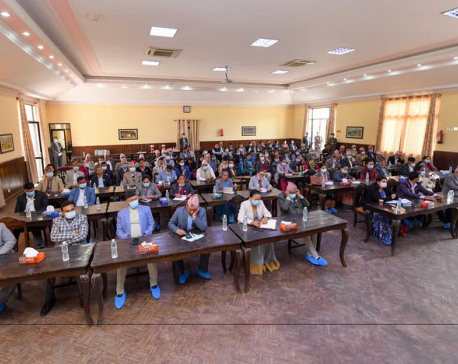
CPN-UML PP meeting forms parliamentary board and statute amendment task force
The board also comprises dissident senior leaders Nepal and Khanal ... Read More...
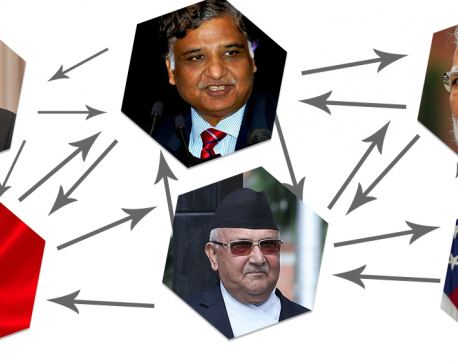
Rumors of political change intensify in Nepal after RAW chief’s visit
"Is Nepal vanishing from the global/regional strategic radar?" asks Dr Bhattarai as Pompeo visits the Maldives, but not Nepal ... Read More...
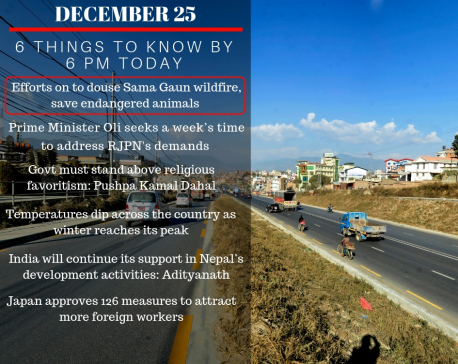
DEC 25: 6 things to know by 6 PM today
Your daily dose of missed important news of the day. ... Read More...


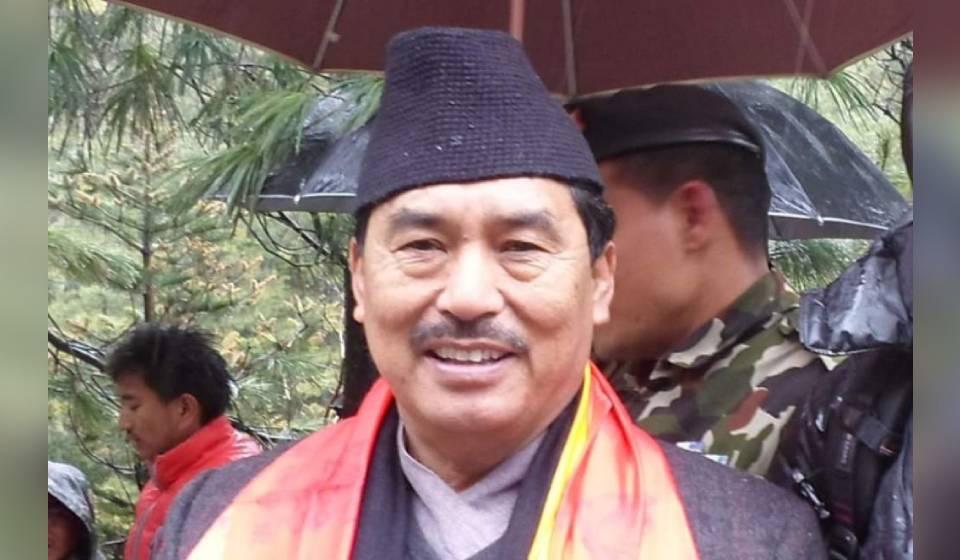






Just In
- SC hearing on fake Bhutanese refugees case involving ex-deputy PM Rayamajhi today
- Clash erupts between police and agitating locals in Dhanusha, nine tear gas shells fired
- Abducted Mishra rescued after eight hours, six arrested
- Forest fire destroys 13 houses in Khotang
- Lungeli appointed as Minister for Labor and Transport in Madhesh province govt
- Bus knocks down a pilgrim to death in Chitwan
- One killed in tractor-hit
- Karnali Chief Minister Kandel to seek vote of confidence today








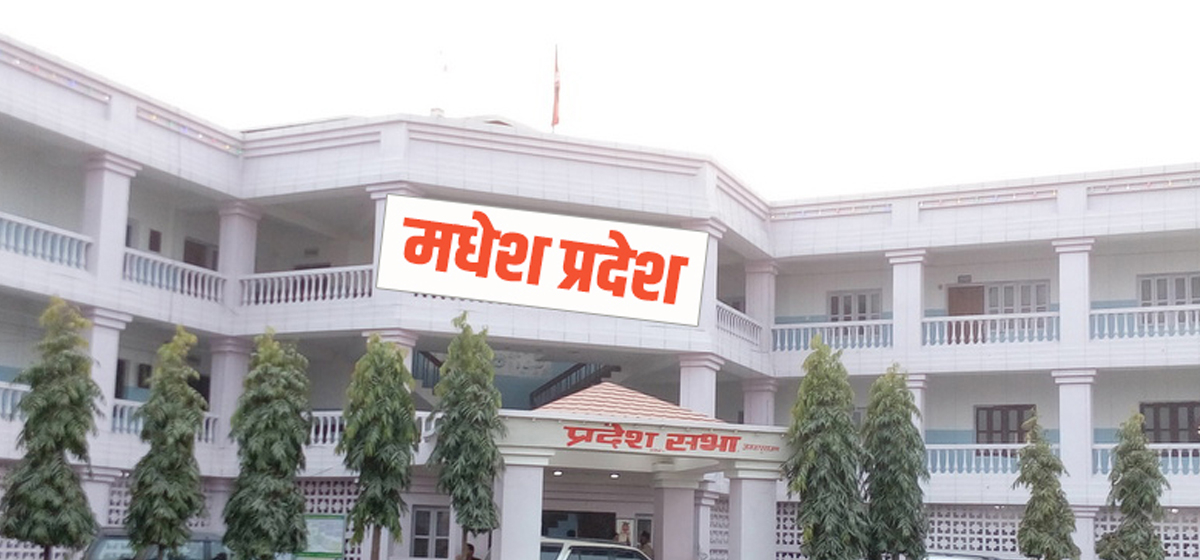

Leave A Comment